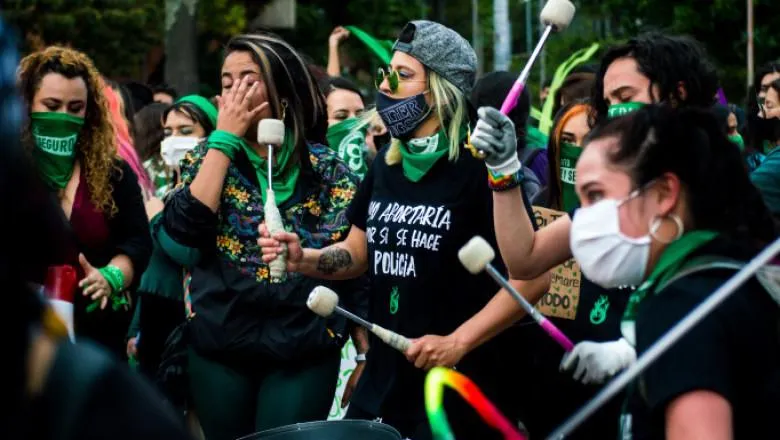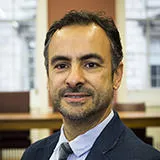The decision by Colombia’s Constitutional Court to partially decriminalise abortion is a victory for women and human rights. Our TLI Clinic is proud to have played a part as amicus curiae in this historic step in Latin America.
Professor Octávio Ferraz
06 May 2022
TLI Clinic submission plays part in historic abortion decision in Colombia
The very-first project from the Transnational Legal Clinic has helped bring about a judgment in Colombia with far-reaching consequences for women’s rights across Latin America.

A submission based on research by 19 postgraduate students from The Dickson Poon School of Law, supervised by Professor Octávio Ferraz, co-Director of the Transnational Legal Institute (TLI), has helped bring about a significant change in the law on abortion in Colombia.
On 21 February, Colombia’s Constitutional Court ruled that abortion was legal up to 24 weeks, concluding a two-year legal battle, and a longer campaign to roll back the country’s restrictive laws on abortion.
In October 2020, Professor Ferraz was approached by Causa Justa, a coalition of Colombian NGOs, activists, health care providers and academic experts. Professor Ferraz was asked to author expert legal advice, to be placed before the Colombian Constitutional Court in a case brought by fourteen Colombian women with the support of Causa Justa. The case was seeking to decriminalise abortion on the basis that the current law violates fundamental rights and freedoms.
Professor Ferraz worked with postgraduate students to research comparative national law and relevant international law and produce a 38-page amicus curiae, or ‘friend of the court’ submission (Spanish submission; English translation). Their submission, which runs to over 13,000 words, was accepted by the Court and subsequently mentioned in an article on the case in the main Colombian daily newspaper, El Tiempo.
Following the Court’s judgment, Professor Ferraz and the then-students received a personal ‘Thank you’ from Causa Justa, noting that, “Your support and work were fundamental to reach this historic achievement for women and girls in Colombia.” The letter describes the change in abortion laws as an “achievement of all the people… who showed the Constitutional Court the urgency of taking a decision soon and favourable to women's rights.”
Prior to this judgment, abortion was limited to cases where the pregnant woman’s life was at risk, where the pregnancy was the result of rape or incest, and when the fetus had significant health issues. The penalty in any other circumstances was imprisonment.
Professor Ferraz said: “I was really proud of the hard work that the students put in and the final result. We had to literally work nights and weekends to get it ready by the deadline. This included translating the submission into Spanish - work done by two of our students, from Spain and Mexico.”
The debate in Colombia reflects wider campaigns for abortion rights across Latin America. In the past year, Argentina, Ecuador and Mexico have all extended abortion rights. Abortion is already legal in Uruguay, Guyana, Cuba, Mexico City and the Mexican State of Oaxaca.
This was the first project undertaken by the Transnational Legal Clinic. At the time of the submission the 19 student volunteers were all studying Human Rights Law, Transnational and International Perspectives, a module co-taught by Professor Ferraz and Professor Eva Pils.
The students who participated in this project were: Lina Santiago Bahia, Adiba Firmansyah, Tara Fiechter, Lucilla Gazziano, Carla Hibbert, Kamile Jankauskyte, Laura Munoz Ledesma, Asher Lesin-Davis, Charlotte Liem, Edith Lipton, Joelle Loetscher, Prasanna Venkatesan Malavika, Diego Abreu Moreno, Elisabetta Moretti, Carlotta Rondoni, Aysha Saleh, Sylvie Schleussner, Grazia Eleonora Vita, and Selena Vitti.


